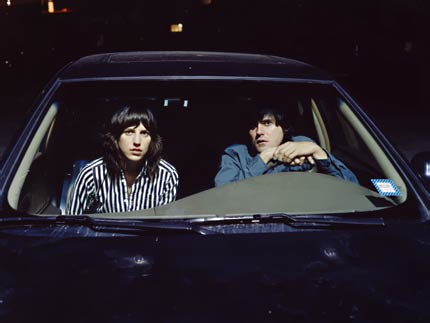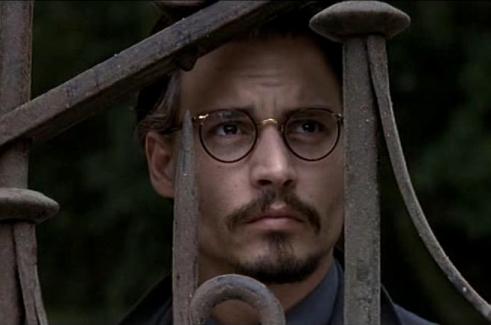
Onwards Satanic Soldiers
by ELEANOR MORROW
I still remember being dragged to the movies by a boy I had liked, or thought I liked. I knew absolutely nothing about what we were about to see. That would never happen today - the vast majority of films we see we know something about: a trailer, a story from the set, a history. But I was more interested in the boy than the film. This is what I surely thought, but turned out to be wrong completely.
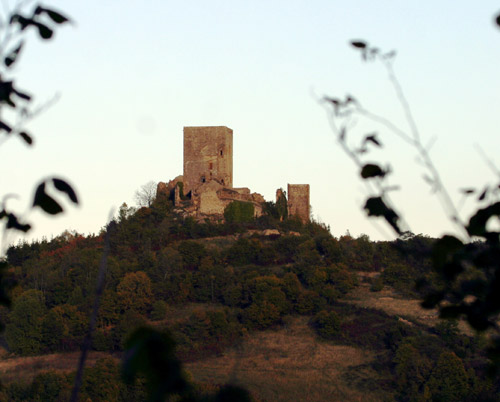
It's rare that critics totally miss on a film, but from the moments that Wojciech Kilar's haunting score takes over in one of the greatest title sequences in cinematic history, these hacks missed on The Ninth Gate. God knows they should never underestimate Roman Polanski, one of our finest working directors, but they did, and North America missed the best film noir since Miller's Crossing.
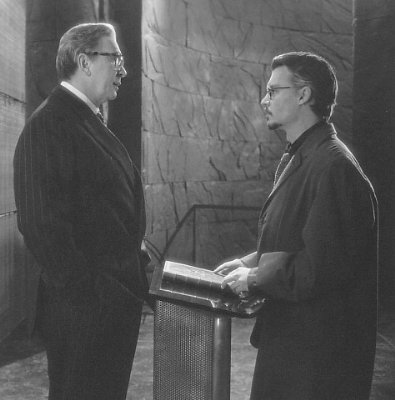
I don't blame them, or the boy I saw the film with, for not getting it. Most people can't accept drama and comedy together, and adding a dash of horror stirs the pot to an almost unrecognizable place. There's the example of David Mamet's The Edge: director Lee Tamahori flatly misunderstood the script, and a hilarious satire never got the laughs it deserved.
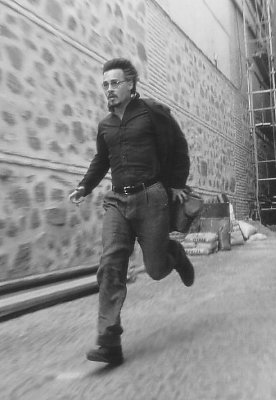
An unsympathetic protagonist is the common element in both of these films. Dean Corso (Johnny Depp) is a specialist in the rarest of rare books. The opening scene of the film has him appraising a family's collection, picking off what he likes from it, and telling them all the rest of the collection is ten times as valuable as it really is. Critics have no use for sleazy antiheros, because their business is the sleaziest of all.
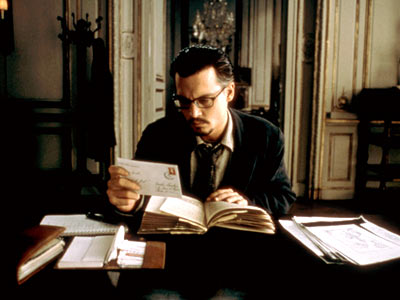
Depp and Polanski didn't argue about how he should play the malignant tumor that is Dean Corso, but Roman later admitted he didn't know his star would be so laid back with his performance. What was in the director's head might have made The Ninth Gate more money, but it would have made it a lesser film. Depp made a brave choice, and in doing so, created a hilarious not-Philip Marlowe that is more entertaining to watch than a debonair Daniel Craig. Understated is so rare in our cinema today that we should throw a party every time it happens.
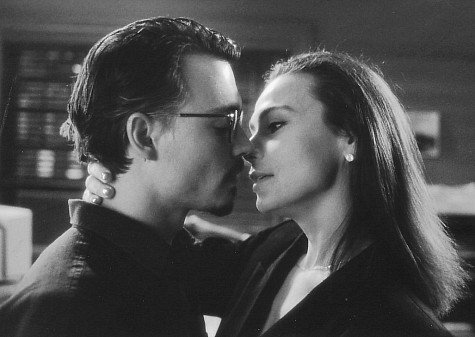
Boris Balkan (a pitch perfect Frank Langella) hires Corso to appraise the four extant copies of The Nine Gates of the Kingdom of Shadows, a book by a writer named Torchia that contains nine engraved illustrations. When correctly deciphered and matched, the illustrations are supposed to raise Lucifer himself.
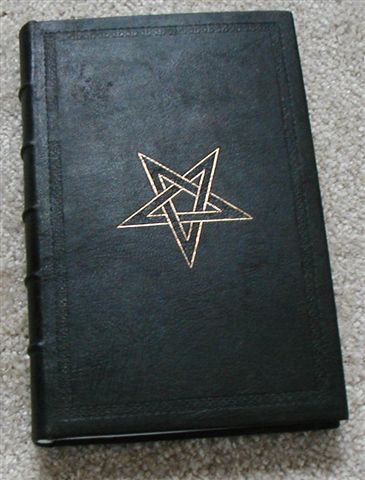
This is Balkan's goal, so believing only one of the copies real, he gives Corso one of the copies and asks him to prove it genuine or fake. He covers his expenses to find out if the other two copies are real, too. Corso immediately hangs out with an antiquarian bookseller, who is murdered in short order in a fashion that simulates one of the engravings in a book. He is treading a dangerous path, but who is after him?
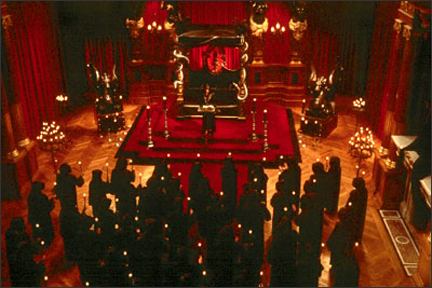
From then on, Corso meanders through Europe on Balkan's say-so, while himself trying to figure out what exactly Balkan wants, and what sort of book this is. It's a mature premise, and that's where Liza Schwarzbaum's impossibly tiny brain got tripped up. Who could guess that this was a comedy? Since I didn't even have a college education at the time, I can vouch that it didn't take much.
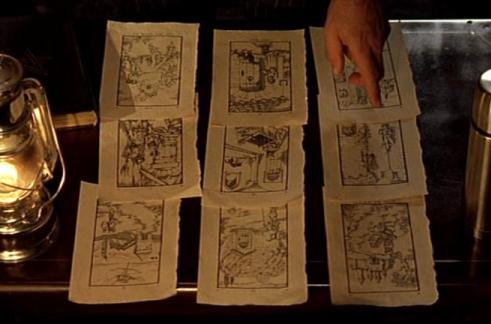
I don't say I have such a great sense of humor. If I find something funny, I laugh, even if the music is dramatic and Johnny Depp has an expression on his face like he just smelled Kate Moss after a coke binge. The Ninth Gate starts as one kind of movie, and then it becomes several more. It resists genre, flauts genre, answers to something that is at once sillier and all too real. Everyone is evil and crazy here, which adds to the ludicrousness of the proceedings. There are more laughs in this movie than in the entire first season of Parks & Recreation.
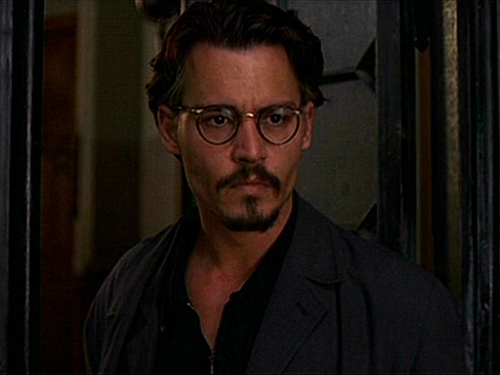
People behave according to their baser motives, and they're not terribly good at hiding them is one of the lessons of this tale, and that's why Depp is right to hold back - we must at least guess what the mercenary Dean Corso is thinking and doing. Most of modern drama depends on us knowing more than our protagonist. In The Ninth Gate, compared to Dean, we know less, much less.
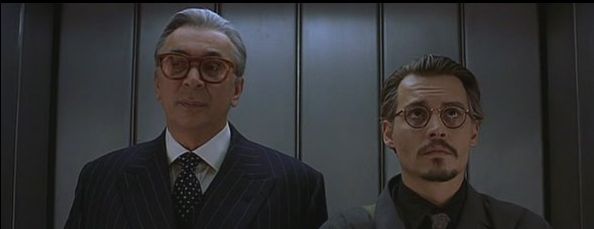
Connection with the devil herself is always dangerous business, but why should it be? We speak to God every day, or some of us do, but we can never commune with the devil. Do our interests never coincide with those of the devil? What if the devil found Amy Adams' nude scene from Sunshine Cleaning and posted it on its blog? Would we be violating ourselves if we viewed it and left a comment like, "thanks for the upload, devilbro"? Answer: not in the least.
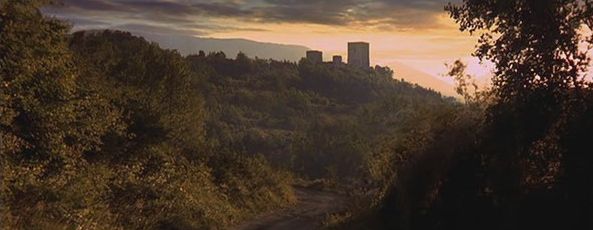
At the beginning of the movie, we can't imagine why someone would want to go to Hell, to know the power that it offers and willingly set out on this dark road. By then, we're totally sure we want exactly what all these insane book collectors do - a method to the madness, a way out of the starched dullness of modernity, to a darker and more destructive future, near the setting of the sun.
Eleanor Morrow is the senior contributor to This Recording. She tumbls here. She last wrote in these pages on the subject of The Hangover.

"Cut The Cake" - The Fiery Furnaces (mp3)
"Staring at the Steeple" - The Fiery Furnaces (mp3)
"Even in the Rain" - The Fiery Furnaces (mp3)
